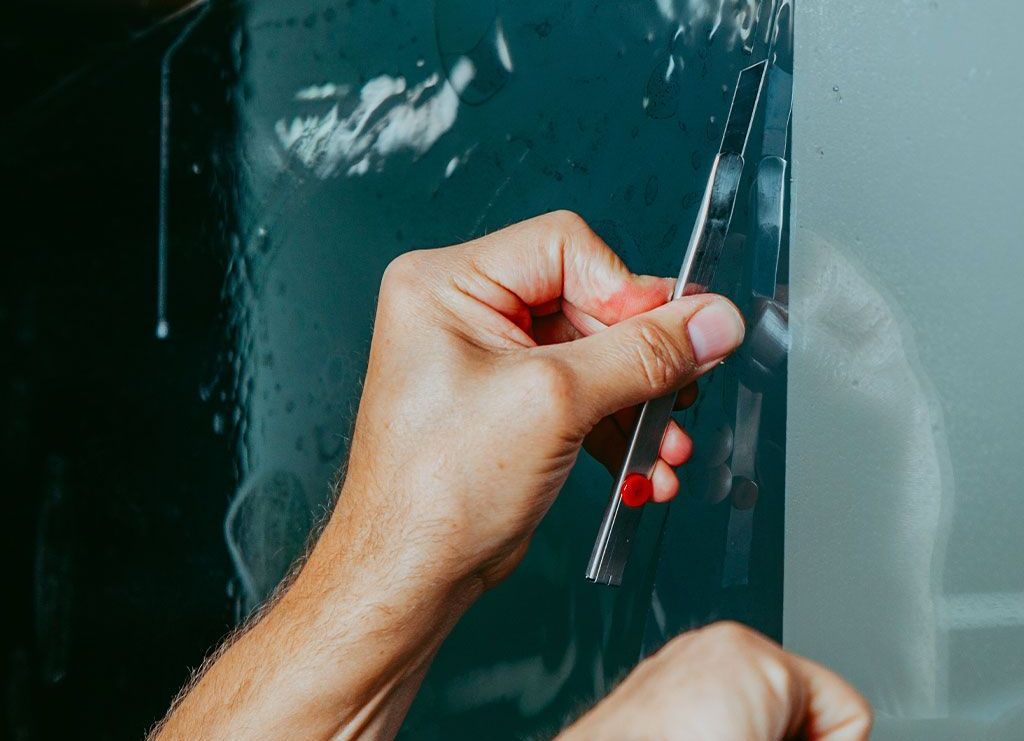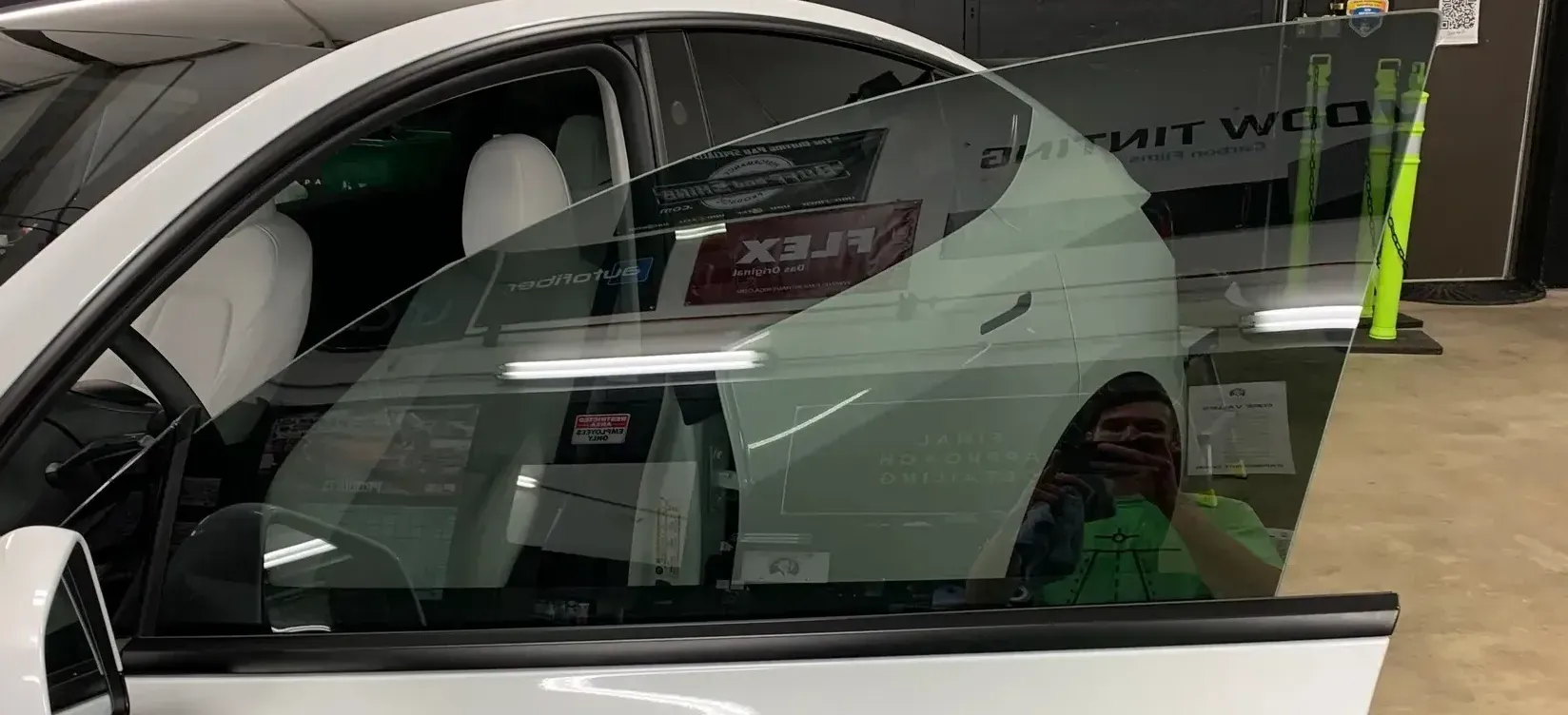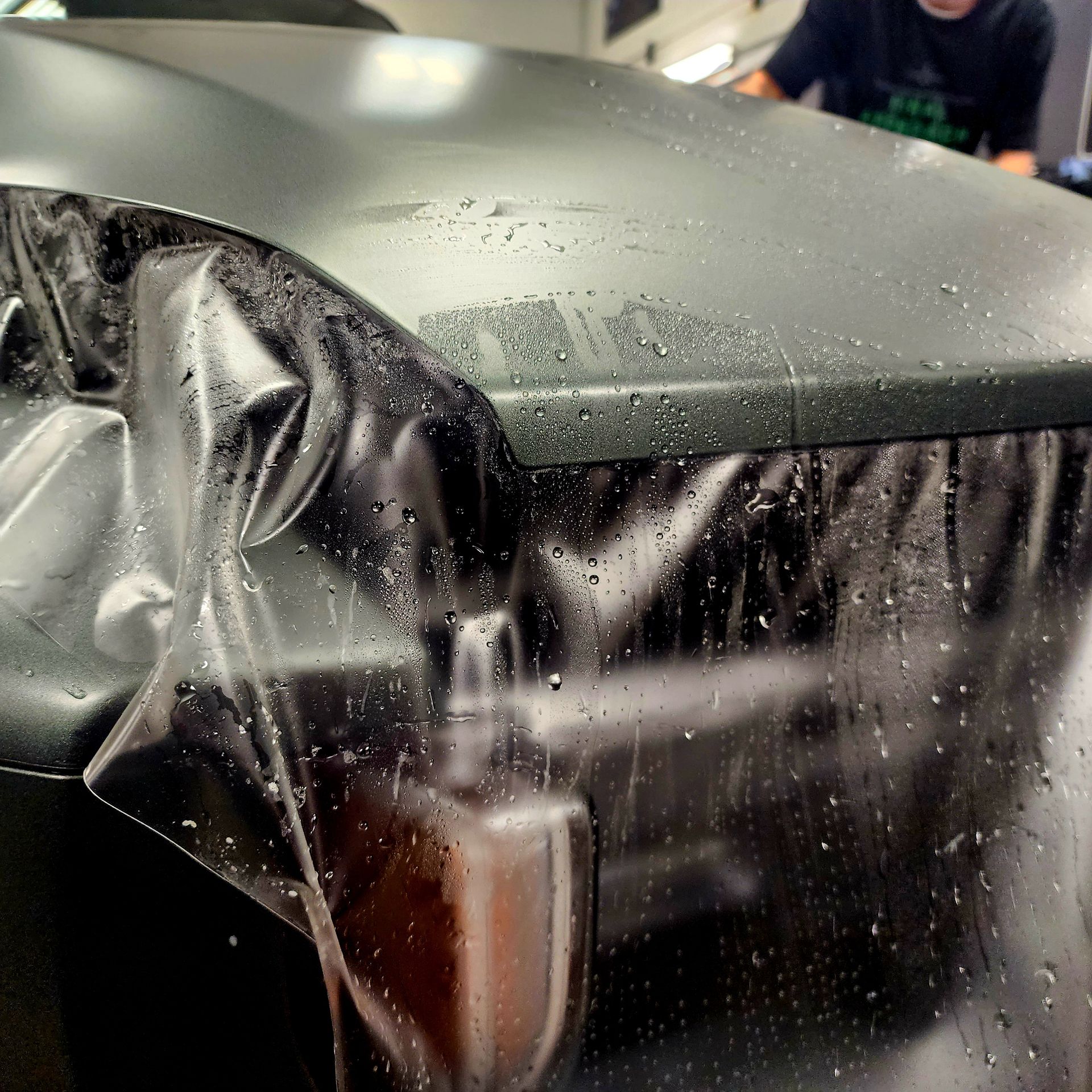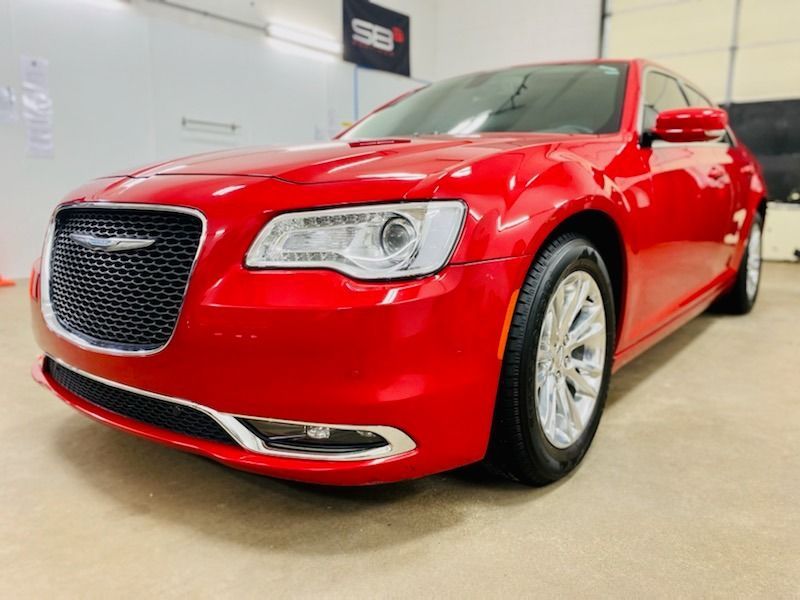Car Window Tinting Laws: Is Car Window Tinting Legal In Michigan?
Car window tinting in Michigan follows specific regulations listed in the Michigan Vehicle Code. These rules dictate details, including where on the vehicle tinting is allowed, how dark the tint can be, and other related factors. Surprisingly, the law varies not just on the darkness of tint but also on which windows on your vehicle can be tinted—front side windows should let in more light compared to rear side windows and the back window. Keep an eye on these details to avoid fines and legal complications. Now, let's find out the answer to the question, “Is car window tinting legal in Michigan?”
Yes, car window tinting is legal in Michigan, but there are regulations and restrictions regarding the darkness of tint that can be applied to windows. It's important to familiarize yourself with the specific laws and regulations set by the Michigan Department of State Police to ensure compliance when tinting your car's windows.
Car Window Tinting Regulations in Michigan
The laws governing car window tinting in Michigan aim to ensure safety on the roads for both drivers and law enforcement. Michigan's Vehicle Code offers clear guidelines on the allowable darkness of the tint, which windows can be tinted, and where it is permitted. To avoid potential fines or penalties, drivers must adhere to these regulations, including knowing which windows can be tinted and ensuring compliance with specified darkness limits.
A non-reflective tint is permitted along the top 4 inches of the windshield. No signs, posters, nontransparent material, or window applications that obstruct the driver’s view are permitted on the front side windows adjacent to both the driver and the front passenger, except for the allowed tint strip at the top.
Tinting on the rear window and any rear side windows is permitted if the vehicle is equipped with two outside rearview mirrors that provide a clear view of the highway behind. This flexibility allows for darker tints on these windows, enhancing privacy and sun protection without compromising safety.
Maintaining compliance with these laws is more than just following regulations; it's about ensuring safety for yourself and others on the road. Overly dark tints can hinder visibility, especially at night or during adverse weather conditions. By following the guidelines set by the Michigan Vehicle Code, you are contributing to increased safety for yourself and everyone around you.
Understanding these regulations will help you make informed decisions about window tinting for your vehicle, enabling you to enjoy both the benefits of tinted windows and peace of mind while driving.

Variations in Darkness Percentage
In Michigan, compliance with window tint laws is not only about having tint but also about its darkness and placement. The law dictates specific light transmission levels for vehicle windows to ensure adequate visibility from both inside and outside the car, promoting road safety.
For instance, the front side windows typically require a higher Visible Light Transmission (VLT) compared to the rear side and rear windows. This prioritizes clear visibility for the driver and passengers at the front, especially during nighttime and low-light conditions. Conversely, higher privacy and glare reduction are generally permitted on the rear windows without significantly compromising visibility.
You can't simply opt for any level of darkness for all your car windows. It's essential to heed these distinctions when deciding on tint darkness levels for each window.
For example, if you're a night owl or appreciate added privacy, you might be inclined to choose darker tints across all windows. However, comprehending and adhering to these variations can shield you from potential penalties while ensuring local law compliance, keeping you secure and worry-free on the road.
Limitations of Windshield and Brake Lights Tint
When it comes to window tinting laws in Michigan, there are specific restrictions in place to uphold road safety. The front windshield is particularly regulated for good reason—it is crucial for visibility, especially during low-light conditions or adverse weather. Any non-transparent material, including dark tints, is strictly prohibited on the front windshield.
This regulation may seem strict, but it's essential for maintaining clear visibility while driving, both for the driver and for pedestrians and other vehicles on the road. Excessive tinting on the front windshield can significantly reduce visibility, leading to dangerous situations such as difficulty reading road signs or not being able to see other vehicles or pedestrians from a distance.
Restrictions on Brake Lights Tint
Brake lights are another focal point when it comes to car window tinting regulations. In Michigan, it's vital that brake lights remain clearly visible to surrounding drivers at all times. Tinting these lights too much could affect their brightness, making it difficult for other drivers to recognize when a vehicle is braking. This compromise in communication between drivers can lead to rear-end collisions and other hazardous scenarios.
These restrictions may seem stringent, but they play a critical role in ensuring road safety. They prevent potential accidents that could occur due to reduced visibility caused by excessive window or brake light tinting on vehicles. Ensuring that brake lights are always clearly visible helps maintain effective communication between drivers on the road, reducing the risk of collisions.

Legal Requirements and Allowed Types of Window Tint
In Michigan, window tinting regulations aim to balance the need for privacy and sun protection with drivers' and law enforcement's visibility requirements. The darkness of the tint is measured by the Visible Light Transmission (VLT) percentage, indicating how much light passes through the tint.
Michigan state law permits non-reflective window tint on specific windows of a vehicle. These include the side windows next to the driver, rear windows on multi-purpose passenger vehicles, and the top 4 inches of the front windshield. Exceeding these allowances can lead to fines or penalties, making it crucial for drivers to understand the permitted types of tints, their darkness limits, and compliance with legal requirements.
Regarding permissible tints, colored, mirrored, and metallic films are all allowed within specified darkness limits. However, reflective or mirrored finishes are not permitted on front side windows or windshields. These regulations ensure drivers maintain clear visibility while also having some privacy and UV protection.
Drivers should consider the impact of tinting on nighttime visibility. Darker tints can significantly reduce nighttime visibility and may not be safe in low-light conditions. It's essential for drivers to strike a balance between achieving their desired level of tinting and ensuring safety during both daytime and nighttime driving.
For example, a driver who regularly commutes in urban areas might opt for a lighter VLT percentage to maintain optimal visibility in heavy traffic conditions. On the other hand, a driver who primarily uses highways might prioritize sun protection and privacy by considering a slightly darker VLT percentage.
By understanding these regulations and making informed decisions about the type and darkness of their window tints, drivers can ensure compliance with Michigan law while enjoying the benefits of window tinting. Consulting a professional window tint installer knowledgeable about state regulations ensures that your vehicle's window tints meet legal requirements, preventing potential issues with law enforcement and prioritizing road safety.
Effects of Non-Compliance to Tinting Laws
Breaking car window tinting laws in Michigan can entail serious consequences, primarily financial penalties. If you get stopped and your window tint is too dark, you might end up paying a hefty fine. What's more, on top of the fine, you could be required to remove the illegal window tint.
Not only is non-compliance costly, but it can also lead to added inconvenience. Imagine getting pulled over for something that could have been avoided by following the rules. It's an extra hassle that disrupts your day and wastes your time.
Reduced Visibility and Safety Risks
Furthermore, non-compliance with tinting laws can create potential safety risks. Illegal and excessively dark tints can significantly reduce visibility for both the driver and law enforcement officers.
For instance, if a police officer needs to see inside your vehicle for any reason, such as during a traffic stop or an emergency situation, the overly dark window tint may hinder their ability to assess the situation accurately. This can lead to misunderstandings and potentially escalate otherwise manageable situations.
Moreover, reduced visibility affects your own safety as well. In low-light conditions or at night, excessively dark window tints can impede your vision, potentially leading to accidents or hazards that could have been avoided with legal, lighter tints.
Staying informed and compliant with tinting regulations is essential for all vehicle owners in Michigan.
It's clear that there are multiple implications for not adhering to tinting laws. Both the financial penalties and safety risks emphasize the importance of knowing and following these regulations to ensure a safe and hassle-free driving experience.
For more information about staying compliant with car window tinting laws in Michigan and installing the right window tinting for your vehicle, visit
Final Approach Detailing. Additionally, if you have any questions or concerns, feel free to
call us at (517) 399-3231!





